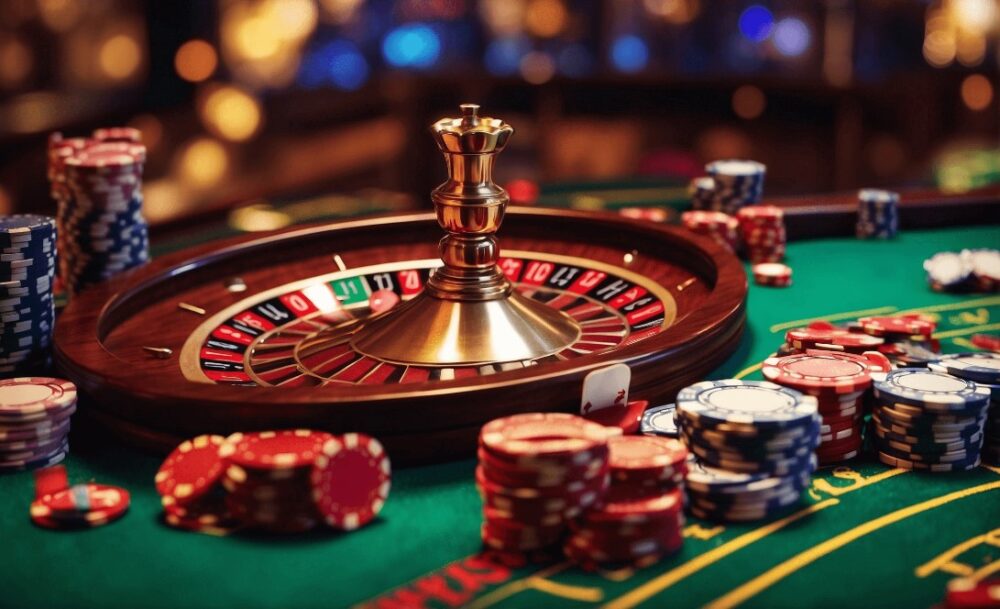
Gambling games have long been an integral part of human culture, offering not just entertainment but a intriguing reflection of our hopes, ambitions, and concerns. From the turning reels of a slot machine to the skill-based strategies of poker, these games embody a range of human emotions and events. At their core, casino games are more than a chance to make profits; they are a snapshot of life itself, where risk versus reward converge and fate can change in an eye blink.
As players assemble around tables or sit in front of vibrantly illuminated machines, they participate in a tradition that transcends mere gambling. These games echo our natural desires for relationships, thrill, and the pursuit of luck. They also disclose deeper truths about human nature, such as our relationship with luck and the thrill of risk. In exploring casino games, we discover not only the nuances of play but also the intricate pattern of the human story, showcasing our intertwining narratives of hope and reality. FB88
The Mind Behind Gambling
Wagering is deeply rooted in the psyche of individuals, tapping into various emotions and desires. The excitement of taking risks is a core aspect that attracts participants, whether the thrill of spinning a roulette wheel or the anticipation of drawing a winning card in poker. This adrenaline is often compared to other forms of excitement, as the uncertainty of outcomes elicits a distinct psychological response. Gamblers often find themselves entranced by the possibility of winning big, leading to an irresistible draw toward casino games.
Another, an essential component of the psychology behind gambling is the concept of hope and aspiration. Participants often indulge in fantasies of financial freedom and the opulent lifestyle that can follow winning. This hope fuels their continued participation in gambling, as it provides a sense of meaning and the conviction that a life-changing win could be just one wager away. The story of beating the odds and achieving success resonates with many, reinforcing their commitment to play and involve themselves with these games.
Lastly, social aspects play a significant role in gambling psychology. Gambling venues are designed to promote social interaction, where players gather to share the experience of wins and losses. This shared aspect not only amplifies enjoyment but also affects behavior, as individuals often imitate the actions of others around them. The social validation found in shared excitement can magnify the emotional experience, making casino games a reflection of not just personal desires but also collective engagement within the gaming community.
### Risk and Reward: A Double-Edged Sword
Casino games embody the fragile balance between risk and gain that resonates deeply with the human experience. The excitement of placing a bet is often accompanied by a jolt of energy, as players are confronted with the prospect of striking it rich, yet conscious of the possibility to suffer losses. This dual experience reflects a core aspect of life: the choices we make often come with built-in risks, and the pursuit of reward can drive us to take chances we might not normally consider. In this way, casino games mirror real-world decisions, enticing gamblers to risk not just their funds, but also their aspirations.
The allure of big prizes and winnings fuels a feeling of positivity, encouraging gamblers to envision a more promising future that could emerge from a lucky spin of the roulette or dealing of a hand. This hope can drive individuals to engage in more daring actions, pushing them to push their boundaries in search of economic benefit. However, just as in life, the consequences of these decisions can lead to both triumph and failure. The stories of both jackpot winners and those who have suffered everything at the casino demonstrate the chaotic nature of luck and its significant repercussions on our lives.
Ultimately, the interaction of engaging with casino games serves as a strong reminder of the nature of humanity. Every game played is loaded with the tension of ambiguity, as gamblers weigh the gains against the risks. This dynamic not only highlights the thrill that comes with gambling but also unveils the risks that come with the urge for more. As we journey through the complexities of decision-making and consequence in both the gambling world and in life, we find that the pursuit of risk and reward shapes our sense of self and journeys in significant manners.
Community and Loneliness in Gambling Culture
Gambling environment is a distinct mix of social interaction and personal endeavor, reflecting the tensions of human experience. Nạp tiền FB88 Gamblers often gather around games, experiencing in the thrill of the game, celebrating wins, and sympathizing over losses. This social aspect is crucial, as it establishes a sense of community and camaraderie among diverse groups of people. Regular attendees to casinos may build friendships and develop routines, turning the gambling venue into a alternative home where they experience connected to a larger community of players.
However, the attraction of casino games can also lead to isolation. As individuals become immersed in the excitement of gambling, they may isolate from personal connections or fail to interact with the environment outside the casino. For some, the pursuit of a windfall can overshadow real connections, leading to loneliness. The situation of being among others yet feeling solitary is not uncommon, as the focus shifts from shared enjoyment to the private concerns of each individual’s journey.
This interaction of society and solitude creates a vivid mosaic that defines gaming atmosphere. It showcases the intricacy of social interactions, where joy and sorrow coexist. Casinos serve as both a refuge for social engagement and a stage for individual challenges, demonstrating how deeply entwined our desire for companionship and the individual quest for wealth can be. In navigating this environment, players confront their own stories—seeking both the rush of the game and the companionship of other players, eventually mirroring the wider spectrum of human experience.